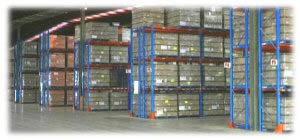 Freight operator Fletchers Freighters has gone into voluntary administration. |
Cash flow pressures - rather than poor sales - are to blame for more than 80% of business failures, according to new research by Dun & Bradstreet.
Cash flow tracks the total cash coming in and going out of a firm, usually over a 12-month period, and is regarded as a crucial measure of business health.
The data reveals that a relatively large number of firms have operated with negative cash flow for a number of years. However, the real concern is that while this practice was sustainable during the boom years, largely due to easy access to credit facilities such as bank overdrafts and debt funding, the current environment makes it much more likely these firms will fail as credit and other forms of debt have dried up.
Dun & Bradstreet's trade payments data, which tracks the speed with which businesses pay their suppliers, shows that creditors are experiencing cash flow pressure from slow customer payments, with average business terms rising to 54 days after a brief period of improvement late last year.
According to CEO Christine Christian, with funding still difficult to come by, corporate Australia is facing a situation where cash flow troubles - which have traditionally only been a concern for SMEs - have become a priority for some of the largest firms in the country.
"For those firms that extend credit to their customers, whether it is bank or trade credit, this research demonstrates that a firm's profit results don't give you enough information to properly assess risk. If you need to know whether a firm will be around long enough to pay your accounts, cash flow is a critical indicator."
Dun & Bradstreet rates around 10% of firms at a very high risk of experiencing financial distress over the next 12 months. However, this jumps to 19% for firms that have experienced negative cash flow. Critically, the Dun & Bradstreet data shows that firms that have experienced negative cash flow remain a higher risk of eventual failure regardless of whether they experience a period of positive cash flow in the future.
"Despite a solid profit reporting season which raised confidence levels within the business community, this research shows that a substantial portion of firms are actually facing relatively serious financial struggles.
"With borrowing to cover shortfalls largely out of the question as financial institutions retain the risk-averse stance they established during the height of the crisis, Australia could experience a drastic spike in companies entering external administration this year and into 2011."
Just a few days ago, freight operator Fletchers Freighters went into voluntary administration. The company, established in 1948, has depots in Adelaide, Berri, Sydney, Melbourne and Brisbane and operates a modern fleet of around 80 trucks with a turnover of around $40 million.
Control of the business and its assets now rests with the administrators, McGrathNicol.
Sam Davies of McGrathNicol says the administrators will continue operations on a 'business as normal' basis while assessing restructuring and trade sale opportunities.
"We are working with Fletchers Freighters' management and will keep all stakeholders fully updated throughout this process."